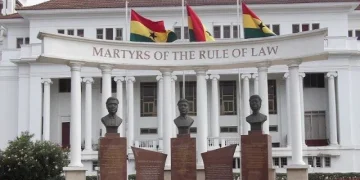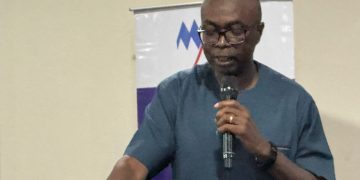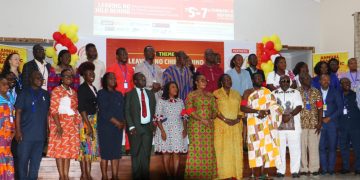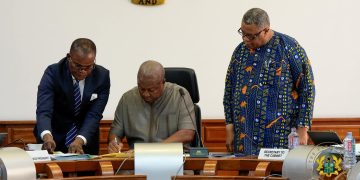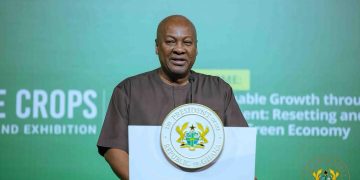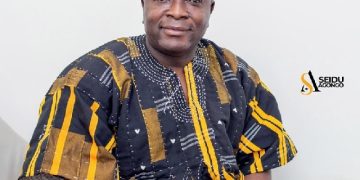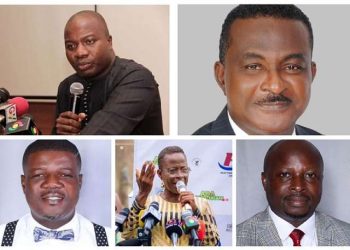The Member of Parliament for Old Tafo Constituency, Vincent Ekow Assafuah, has launched a scathing critique of Speaker Alban Bagbin’s recent decision to suspend four MPs, describing the move as unconstitutional, arbitrary, and a dangerous precedent for Ghana’s democracy.
The controversy stems from Speaker Bagbin’s suspension of Majority Chief Whip Rockson-Nelson Dafeamekpor, Minority Chief Whip Frank Annoh-Dompreh, as well as MPs Alhassan Sulemana Tampuli and Jerry Ahmed Shaib.
The suspension, announced on Friday, January 31, 2025, bars the lawmakers from parliamentary sittings for two weeks. This drastic measure followed violent clashes during an Appointments Committee session on Thursday, January 30, which descended into chaos and physical altercations.
In an interview with Citi TV, monitored by www.kumasimail.com Vincent Ekow Assafuah did not mince words. He accused the Speaker of bypassing constitutional processes and abusing his authority.
“Under the Constitution of the Republic of Ghana and the Standing Orders of Parliament, what are the duties of the Privileges Committee?” he questioned. “This matter should have been referred to the Privileges Committee for investigation. Instead, the Speaker has taken it upon himself to impose sanctions without due process.”
Assafuah argued that Speaker Bagbin’s actions violate Article 19 of Ghana’s Constitution, which guarantees every individual the right to a fair hearing before being condemned or punished.
“The Constitution of the Republic of Ghana, being supreme to any other law, including standing orders, outlines the sources of law in Article 11. According to the Constitution, its supremacy is paramount, and as stated in Article 101, standing orders are subsidiary laws. Therefore, if the Constitution mandates that individuals be heard before being condemned, as stated in Article 19, why would Order 5, a subsidiary law, be used to override a constitutional provision? Similarly, Chapter 5 of the Constitution emphasizes the presumption of innocence until proven guilty after due process. It is inconsistent to apply Order 5, a subsidiary law, to suspend individuals, as this contradicts constitutional law.”
He called for a fact-finding process to uncover what truly transpired during the Appointments Committee session before any sanctions are enforced.
“This chaos occurred at the committee level, where the speaker was absent, making it impossible to impose immediate sanctions. A fact-finding mission is necessary to uncover what really transpired”.
The Old Tafo MP also raised concerns about selective justice in the Speaker’s decision. He alleged that some individuals who were central to the chaos during the Appointments Committee session were left unpunished.
“I cited only one person Asiedu Nketia’s son, who was visible in the video. Did you see him? He was at the center of everything. Why sanction some people and leave others out”, Assafuah questioned.
He further emphasized that such actions create an environment where power can be misused.
“the Speaker of Parliament does not have the power to unilaterally make certain decisions. I strongly disagree with this notion, as I believe it sets a bad precedent. The precedent being set by the Speaker of Parliament is alarming, as it would grant the Speaker excessive power, potentially allowing them to act arbitrarily. If we permit this precedent to stand, it will inevitably come back to haunt us”.
He added “if I were to return to Parliament tomorrow, the Speaker could potentially invoke Order 5 and declare me no longer a member of Parliament, citing some perceived infraction”, Assafour emphasized.
Assafuah described Bagbin’s actions as an affront to Ghana’s constitutional democracy. “This is not law; this is autocracy,” he declared passionately. “In a democratic society, you don’t use your own understanding of events to impose sanctions without proper procedures.”
The MP concluded by urging Parliament and Ghanaians at large to reject any actions that undermine constitutional principles. He warned that allowing such decisions could erode democratic governance in Ghana.
“Our Constitution is clear: no one is guilty until proven so after due process. We must not allow arbitrary decisions to override this fundamental principle,” Assafuah stated.
Source: www.kumasimail.com/ Kwadwo Owusu



